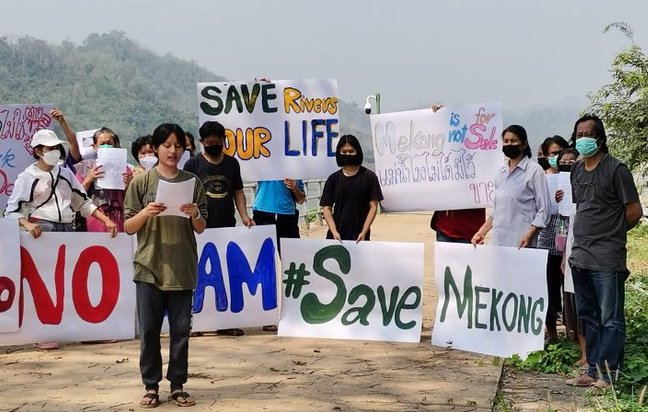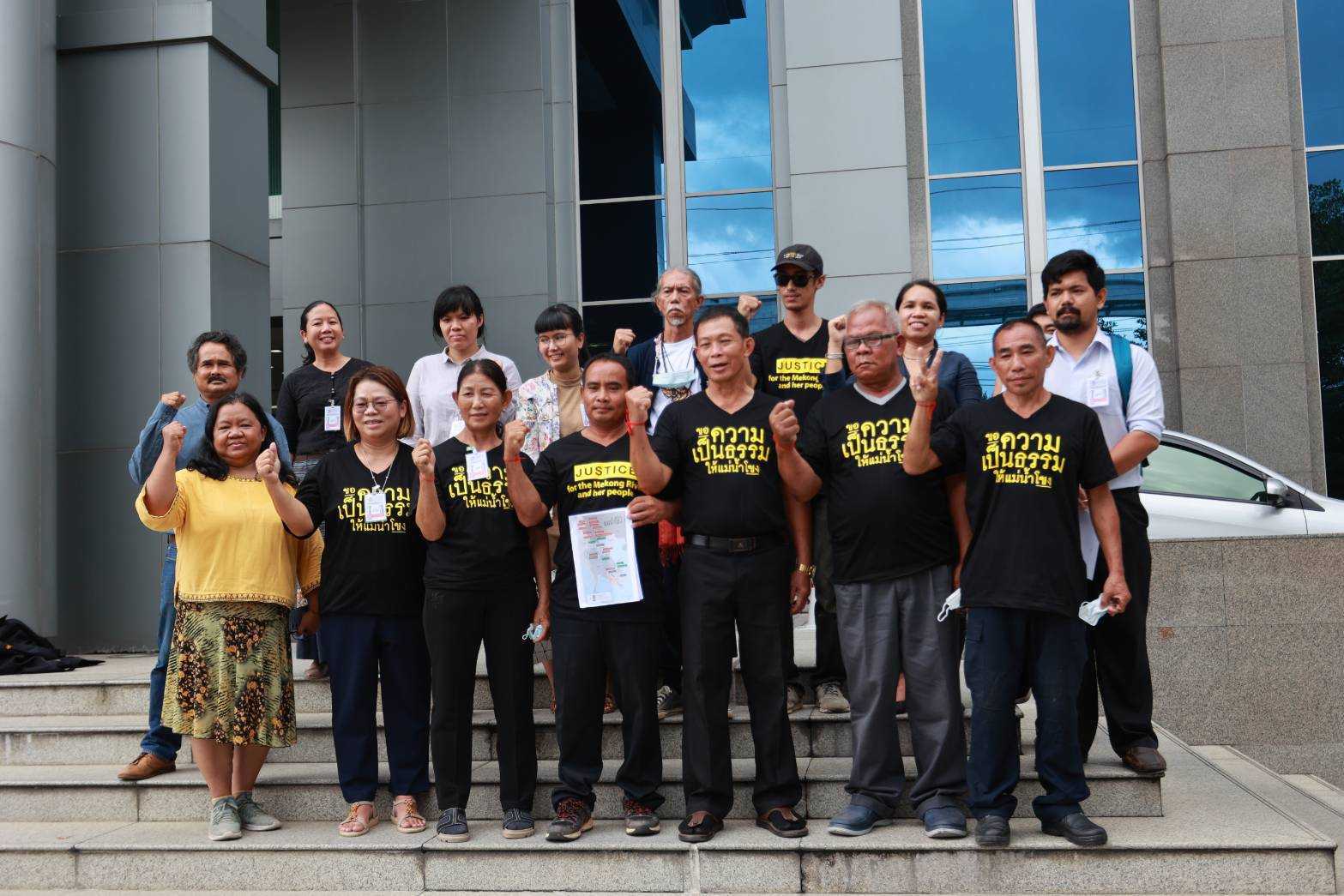By Phairin Sohsai and Gary Lee
On 17 August, the Thai Supreme Administrative Court ruled to dismiss a lawsuit, filed by 37 Thai villagers against five Thai state agencies for their role in approving the Xayaburi hydropower dam’s Power Purchase Agreement (PPA).
Filed 10 years ago, the Xayaburi lawsuit was the first community-filed lawsuit related to dam building on the Mekong River, and the first lawsuit on a transboundary project. The lawsuit was filed against five Thai state agencies, including the National Energy Policy Council, the Thai Cabinet, and the Electricity Generating Authority of Thailand (EGAT) for their role in approving the project’s PPA. The lawsuit asserted that the PPA is illegal under both the Thai Constitution and the 1995 Mekong Agreement. The claims were made based on the Thai agencies’ failure to provide information, assess impacts (including transboundary impacts), and ensure public participation in the decision to purchase power from the dam.
The 1285-megawatt Xayaburi dam was the first dam to begin construction on the lower Mekong mainstream. While located in northern Laos, it is largely a Thai project. The developer, Xayaburi Power Company Limited, is majority-owned by a consortium of Thai companies led by CK Power Public Company Limited, a subsidiary of Ch. Karnchang, a major Thai construction company. The dam was financed by a syndicated loan from six Thai banks and 95% of the electricity is being sold to Thailand.
While the Court acknowledged Xayaburi dam has adverse environmental and social impacts, it found the Power Purchase Agreement did not directly impact people and the environment. In other words, the decision to purchase power from the Xayaburi dam has effectively been separated from the dam’s construction and operation. Yet the PPA is a key agreement that enables dams to be built. Without a PPA, which confirms there is a market and buyer for the electricity, it is very unlikely for a large dam like Xayaburi to secure the loans necessary to proceed with construction.
Furthermore, PPAs can significantly influence how a dam is operated, given the agreement includes electricity generation targets and financial penalties in cases when targets are not met. The way dams are operated has had significant impacts on the river and communities. The impacts of the Xayaburi dam, which started operations in 2019, are clear and widespread, as documented in the evidence the plaintiffs filed to the Supreme Administrative Court in February 2020.
No transboundary impact assessment was ever conducted for the Xayaburi dam. The Xayaburi dam environmental impact assessment (EIA), completed in 2010, only assessed potential impacts in the areas to be flooded for the reservoir and up to ten kilometers downstream. An independent review of the EIA, commissioned by International Rivers in 2011, found the EIA had flaws and failed to meet even minimum standards for consultation and public participation. The poor quality of the EIA and project documents is also evident in the Mekong River Commission’s Technical Review Report (TRR), which found multiple gaps and flaws. The TRR notes that “dam design as well as management and mitigation measures as proposed in submitted documents do not yet comply with the PDG [Preliminary Design Guidance] or international best practice.”
The court also determined that under the Environment Quality Promotion and Conservation Act (1992), Power Purchase Agreements are not listed as among projects that require an EIA despite their decisive role in the building of large-scale dams in neighboring countries, including on the Mekong mainstream, that have major and widespread environmental and social impacts. This oversight calls for an urgent improvement of laws and regulations related to EIAs and cross-border investments, for example by adding PPAs as a list of “projects” requiring an environmental impact assessment. Such changes can also help better align Thai laws and regulations with commitments already made by the Thai government under its first National Action Plan on Business and Human Rights (NAP, 2019-2022), which includes commitments to review and amend laws, regulations, policies and related measures to better protect and respect human rights and remedy human rights violations in cross-border investments. For example, the NAP notes:
“Concrete laws or policies should be enacted as well as mechanisms to detect human rights violations outside the territory should be established in order to provide protection, remedy and cross-border responsibility. The abused can use the process of justice in Thailand for protection and remedy, such as the National Environmental Quality Promotion and Conservation Act B.E. 2535 (1992)… Consider measures to establish the impact analysis report of the cross-border environment (Transboundary EIA) and monitor measures for cross-border impacts on health, agriculture and the environment. Determine measures to prevent human rights violations in investment projects of state enterprises and the Thai business sector abroad.” (p.123-124)
The need to strengthen regulations of cross-border investments is particularly important in light of the Thailand National Energy Policy Council’s recent go-ahead to the Electricity Generating Authority of Thailand to sign Power Purchase Agreements for three more Mekong mainstream dams – Pak Beng, Luang Prabang, and Pak Lay.

While the Xayaburi court case was lost, the campaign to protect the Mekong and the rights of communities continues on.
Featured photo: Members of the Thai Mekong People’s Network from eight provinces stand outside the Thai court after the verdict, Aug. 17, 2022. Photo by Wichai Juntavaro

